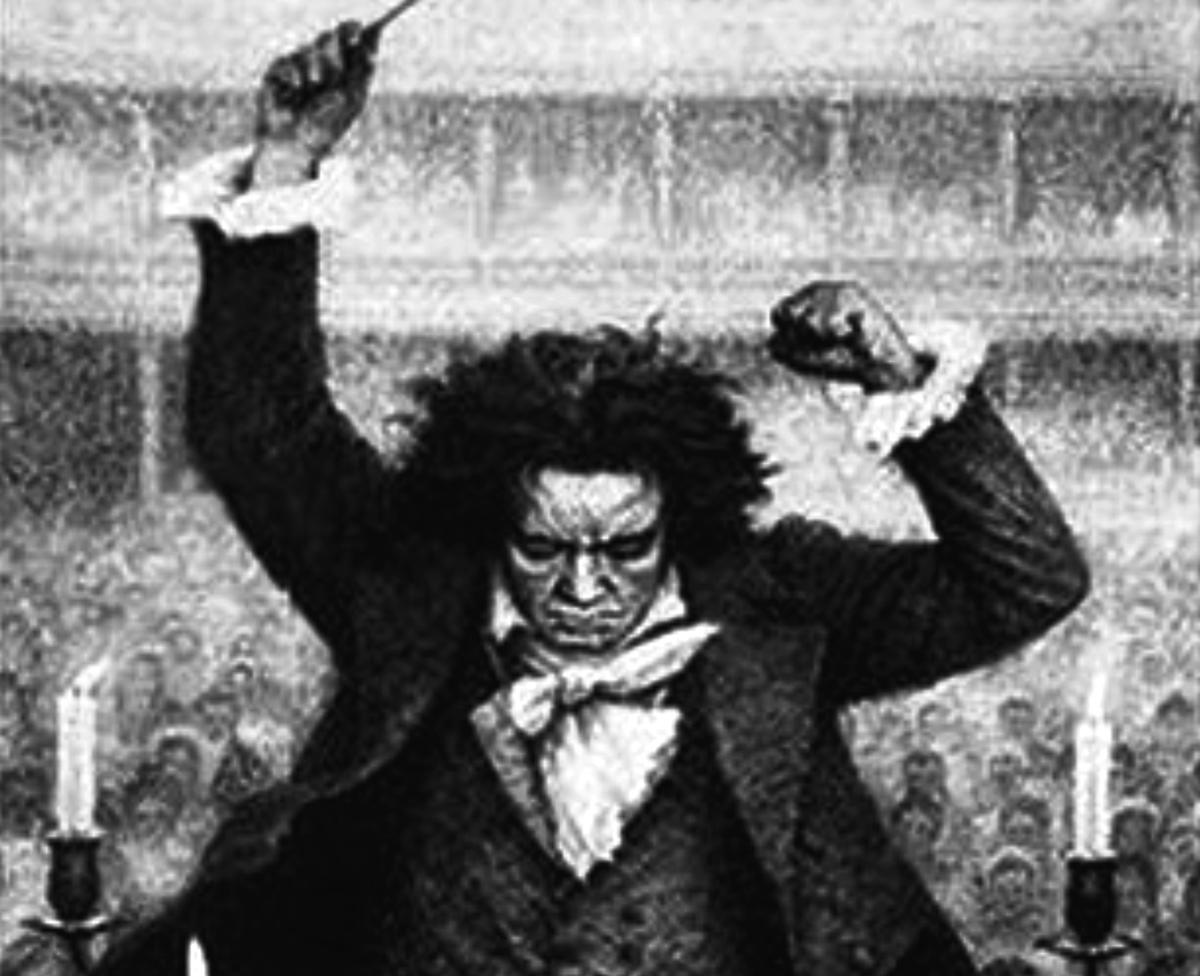MARCH 6, 2020 – Yesterday evening my book club met to discuss this month’s book—the Beethoven biography (see February 23 post)—along with our perennial topic: politics. Both the book discussion and the political talk were robust.
Only one of us had read all 937 pages of the biography. I was second at page 825 plus the last four. I now have a much better understanding of The Titan of Western classical music and am grateful to the book club member who made the selection. Beethoven’s genius was accompanied by myriad personal flaws, which overwhelmed his life. Often the flaws and the genius were galloping away on the same horse. From a musical perspective, I was fascinated by (a) the prominent role of highly accomplished women musicians in Beethoven’s life; (b) the often slam-baked, free-lance, professional/amateur orchestral performances of Beethoven’s work; (c) the evolving design and manufacture of pianos during Beethoven’s era; and (d) the fraught, arduous business of copying and publishing Beethoven’s music.
As I read the titanic book about the titanic composer, I “visualized” a screenplay called, “Ludwig” (from a box office standpoint, think, “Amadeus”). Direction of the film would require the imaginative genius of a Steven Spielberg, not to mention virtuosi at the keyboard, but I can envision how “Ludwig” could be a smash hit even with people who have little to no exposure to Western classical music.
The arcs of tension and resolution in the film would form a duet of Beethoven’s flaws and genius; his abject failures and his crowning achievements. The backdrop of revolution and counter-revolution across Europe during his day would remain as accompaniment, distilled to reflect the human condition in general; the ongoing struggle between accomplishment and destruction, between ideals and reality. In short, the film would show what it is to be human.
Now . . . politics. After discussing the Super Tuesday blow-out, we turned to Bernie’s campaign. The more we dug into it, the more questions we raised and tried to answer. The lead-off question was, “Where was his turn-out?” As I read out (from my smartphone) state-by-state comparisons of the youth vote—2016 vs. 2020—we questioned the momentum of the “revolution.” When we examined Bernie’s legislative record, we came up empty. He’s not shepherded much of anything through committee, onto the floor, through conference committee, ultimate passage, and into law. Against that record of non-accomplishment, his talking points sound even more like . . . haranguing, not a viable legislative agenda.
Then there’s the “17-year gap.” Try as we might, we uncovered nothing about Bernie’s life between 1964, when he moved from Chicago to Burlington, VT, and 1981, when he won election (by 10 votes) as mayor of Burlington (about the size of South Bend). Yes, there were anti-war protests and unsuccessful bids for elective office, but aside from running losing political campaigns, how did he occupy his time for 17 of his prime years? Our book club members want to know! Not even Big Tech produced any files on the guy.
Now back to that screenplay . . .
(Remember to subscribe to this blog and receive notifications of new posts by email.)
© 2020 by Eric Nilsson
